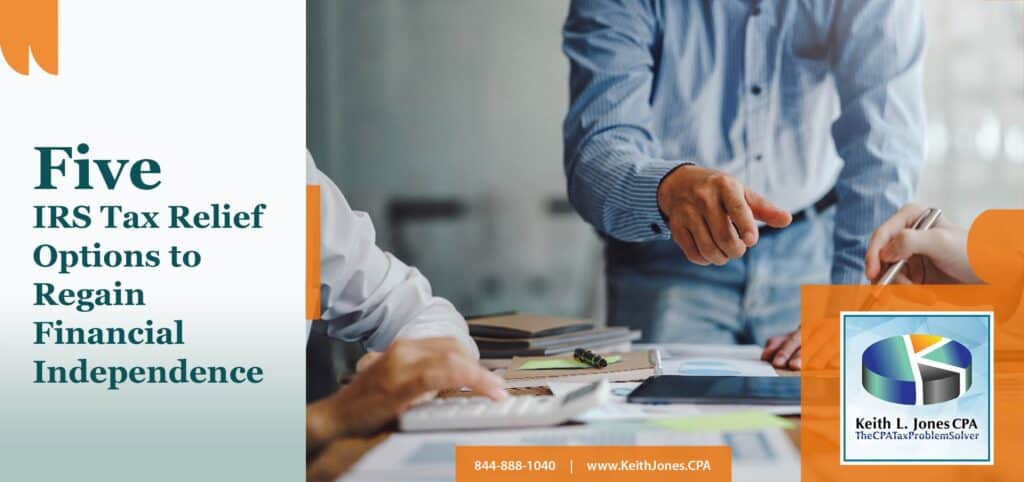Are you drowning in tax debt? Don’t despair. The Fresh Start Initiatives introduced by the IRS can provide the relief you need. Our step-by-step guide simplifies the process, making it easy for ninth graders to understand. Learn about installment agreements, where you pay off your debt in manageable monthly payments. Discover the Offer in Compromise program, allowing you to settle your debt for less than you owe. With the right roadmap, compliance, and professional assistance, you can achieve IRS tax relief and regain control of your financial future. Don’t let tax troubles weigh you down—find your fresh start today.
Unlock your financial luck with these 8 magical keys.
Unlock your financial luck with these 8 magical keys.
5 IRS Tax Relief Programs to Restore Financial Freedom
There are several IRS tax relief programs that give more taxpayers their financial freedom. In this post, I go over five of those programs.


